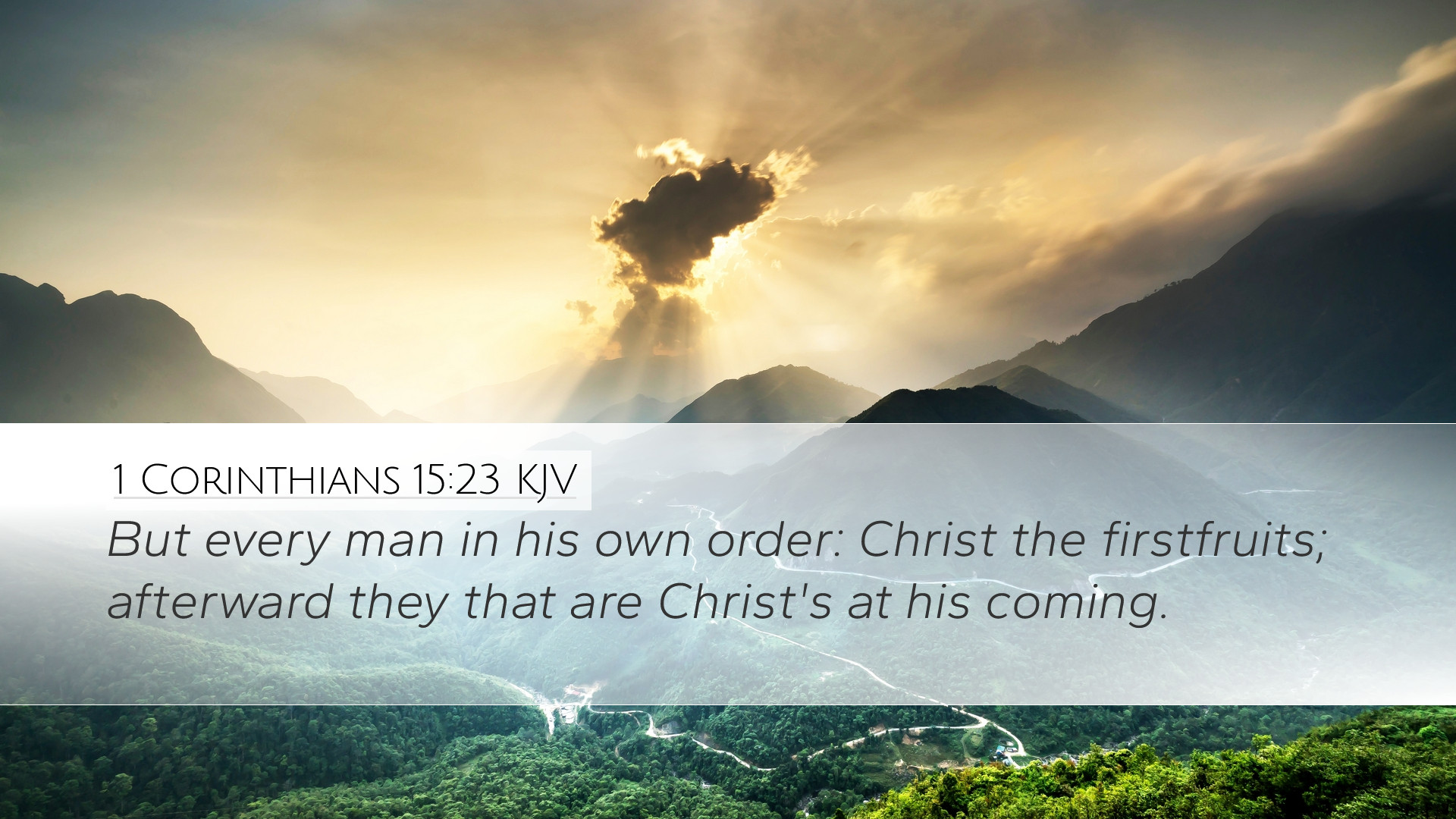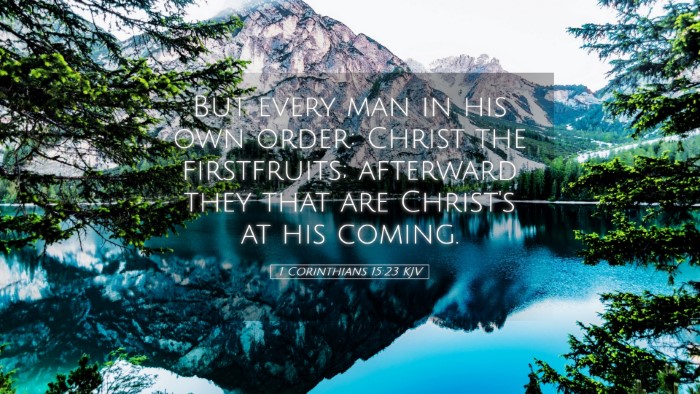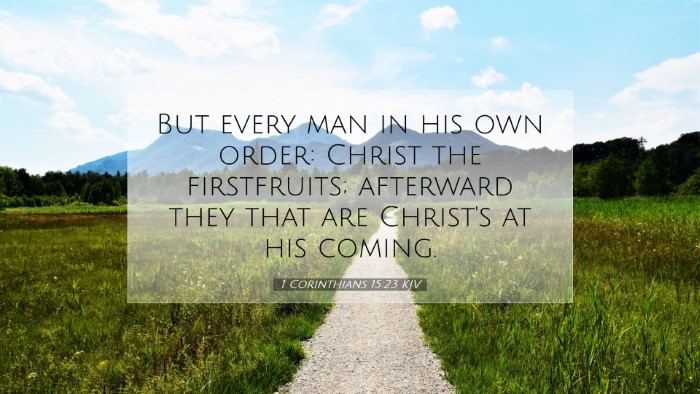1 Corinthians 15:23 Commentary
Verse Context: 1 Corinthians 15:23 states, "But each in his own order: Christ the firstfruits; afterward at his coming those who belong to Christ." This verse falls within the Apostle Paul’s discussion on the resurrection of the dead and the order of resurrection, emphasizing Christ's pivotal role in the process of salvation and resurrection.
Introduction
This commentary seeks to elucidate the profound truths presented in 1 Corinthians 15:23. It draws from the insights of esteemed public domain commentaries to provide theological depth, historical context, and practical application. Understanding this verse is crucial for grasping the entirety of Christian hope in resurrection and eternal life.
Theological Significance
The resurrection of Christ is foundational to Christian faith, and this verse explicitly confirms His primacy in the resurrection order. As Matthew Henry notes, “Christ was the first to rise from the dead, never to die again, establishing Himself as the firstfruits of those who will be resurrected.” Thus, the resurrection is not merely a historical event but the cornerstone of Christian hope.
Albert Barnes adds that the term "firstfruits" is significant as it signifies something that is both representative and a precursor to a larger harvest. This indicates that Christ's resurrection is both the first of its kind and assures that others will follow in due time, which emphasizes the believer's hope in their own resurrection.
Order of Resurrection
Paul addresses "each in his own order," indicating a structured timeline for resurrection. Adam Clarke elaborates on this by explaining that Christ's resurrection came before any other, establishing a divine chronological sequence in God’s redemptive plan. Here’s a closer look at this order:
- Jesus Christ: The Firstfruits - The resurrection of Christ is unique and vital, marking the beginning of new life.
- Those Who Belong to Christ: The faithful believers who have died will experience resurrection at Christ's second coming, highlighting a communal aspect of resurrection.
- The Rest of the Dead: This suggests an eventual resurrection for all, with a distinction between the righteous and the unrighteous as noted elsewhere in scripture (Revelation 20:5-6).
Spiritual Implications
The implications of this verse extend beyond eschatological promises; it profoundly impacts the believer's spiritual life today. Matthew Henry states that Christ’s resurrection guarantees the believer’s future resurrection and provides a model for living a resurrected life now - a life characterized by hope and faith in divine promises.
Furthermore, Albert Barnes asserts that the assurance of resurrection should transform how believers live their present lives, empowering them to endure trials with the mindset of future glory. This offers immense comfort to Christians facing persecution or sorrow, reminding them that their struggles are not in vain, as they await the ultimate fulfillment of God’s promise.
The Challenge of Understanding Resurrection
Despite the clarity Paul provides, the concept of resurrection can be challenging for many, reflecting concerns about physical restoration versus a spiritual resurrection. Adam Clarke discusses the progressive nature of resurrection understanding, where the concepts were initially veiled but gradually revealed through Christ’s work. This builds a bridge to understanding the mystery and promise of resurrection for future believers.
The resurrection embodies not just a future hope but also a present reality for believers. This paradox challenges them to exercise faith in the unseen and to actively participate in the life that Christ extends to them through the Holy Spirit.
Conclusion
1 Corinthians 15:23 serves as a vital reminder of the promise and reality of resurrection life in Christ. The insights from public domain commentaries underscore the importance of Christ as the “firstfruits” and His role in the overall resurrection narrative. It encourages believers to understand their identity in Christ and the hope they carry as a result of His defeat over death.
For pastors, students, theologians, and Bible scholars, this verse calls for deep reflection on the implications of resurrection in ministry, theological education, and personal faith. Embracing the order of resurrection not only inspires a hope in what is to come but also prompts a transformed life in the here and now.


